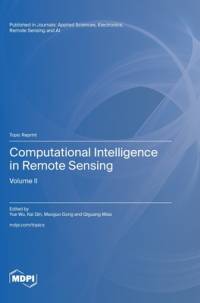Om Computational Intelligence in Remote Sensing
With the advancement of Earth observation techniques, vast amounts of high-resolution remote sensing data are continually captured, proving instrumental in fields such as geography, environmental monitoring, disaster management, and more. However, challenges such as data volume, complex structures, limited labeled samples, and non-convex optimization persist in processing and analyzing remote sensing data. Computational intelligence techniques, inspired by biological intelligence systems, offer potential solutions to these challenges. Computational intelligence (CI) is the theory, design, and application of biologically and linguistically motivated computational paradigms. Traditionally centered around neural networks, fuzzy systems, and evolutionary computation, CI has expanded to include various nature-inspired computing paradigms. These paradigms encompass ambient intelligence, artificial life, cultural learning, artificial endocrine networks, social reasoning, and artificial hormone networks. CI plays a vital role in developing intelligent systems, including games and cognitive developmental systems. Recent years have seen a surge in deep learning research, with deep convolutional neural networks becoming a core method in artificial intelligence. Many successful AI systems today are based on CI, and it is anticipated that CI will provide effective solutions to challenges in remote sensing in the future.
Visa mer

